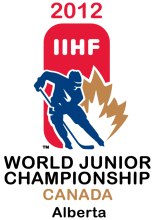In the second part of our discussion with Slavomir Lener, the Czech Republic’s director of the national team program and player development, we discuss issues like encouraging young players to stay home, holding special summer camps, and putting the U20 team back on the podium.
At the pro level in the Czech Republic, what are the main issues you’re dealing with?Obviously the biggest ongoing problem for us right now is for the guys playing U20, that they’re not playing in the Extraliga, our top league. If they make the main team, they tend to play six or eight minutes. And our junior teams are not good enough for them.
There is a lot of talking and politics involved. We have to convince the owners of those clubs that not only are these young players cheaper, but it’s also a great long-term investment. That’s why so many young players are leaving to play in the Canadian Hockey League. I don’t like that. If the player doesn’t have a spot in the Czech Republic and he’s not playing on our big team, that’s OK if he goes to the CHL.
But I don’t like it when the guys are 16 or 17 and leaving too early. I’m saying they’re hybrids. They’re not really Czech products anymore, but they’re never going to be a Canadian product either. So they end up somewhere in between. I’d like to see them stay until they are 20 or 21, and then, when they’re done and are ready to play big-time hockey, they should go. But it’s a tough task. We need to give them a better environment to develop. We need to give them better teams to play for. That’s the task for the next two years.
This summer we have a big conference, held every four years. We’ll vote for the new people who run the show. I believe we’ll find a way to create a good space for these players. So we’ll have 20 or 40 young players, 18, 19 or 20 years old, playing big-time hockey. Then I think it’ll be a crucial, crucial stage for us and we can go the right direction.
Have you set any specific targets that you would like the U20 program to hit in the next few years, like cracking the medals?We know where we are right now, and I would like to establish our hockey again to be top-six. Steadily among the top six in the world. This is our goal. When you’re in the top six, you always find a time when you get a medal. Sometimes you might fall down and be seventh. But if you are most of the time third, fourth, fifth, sixth, then you have a steady program with steady results. And you can think about winning a gold medal.
Is it tough to manage the expectations of fans back home, especially given the great run Czech hockey had at all levels between 1998 and 2001?It is tough. But I wasn’t so naïve as to come back and think that everything was going to turn around in one year and we would be fantastic right from the beginning. This is the most common question, even in the Czech Republic: “Do you still have the energy, do you have still the passion to work on those programs?” Yes, I do, because I expected there would be a lot of problems, and it’s a long road.
In some ways, I already feel the passion of some coaches. They are much more interested. Some players have improved a lot. Something new for us is running summer camps on the ice for the U16, U17, U18, and U20 players. We skated in May, June, and July. It’s like four or five days, a big injection of skill each time. We give them directions on where they should go during the season. Obviously then you see how they’re improving. It really works. They’re young people, young athletes. You can see the results right away.
At the same time, Canada is working hard. So are the Swedes and Finns. So you see that these guys are improving and getting better, but I would like to see that they’re also getting better compared to the other countries. So we need to compete against one another – or even train together.
What would that translate to in practice?One of my ideas right now is to have a camp together: the Finns, Czechs, and Russians. I hope I’m going to have an agreement with all those federations, and I would like to arrange that camp in July. We could try maybe just to start with five-man units, each country, play against one another, play together, mix the guys up. It’s just a way to get fresher, get some new energy and new motivation for our players.
So there are a lot of ideas. But those are the short-term ones. You can see there is a light at the end of the tunnel. We are going in the right direction. For the long-term, talking about the medals, I see it maybe five or ten years from now.
LUCAS AYKROYD
Links: Part I of the interview,
video feature with Lener in 2011






